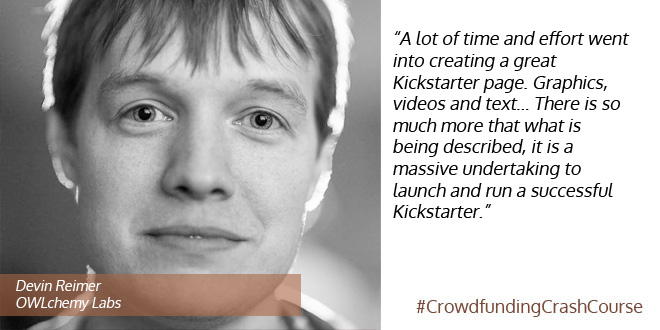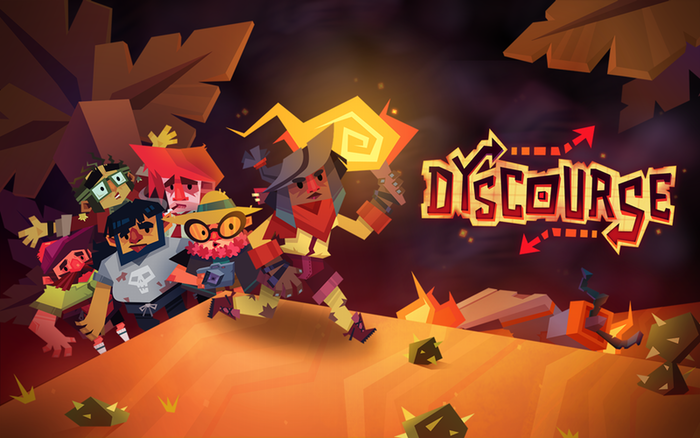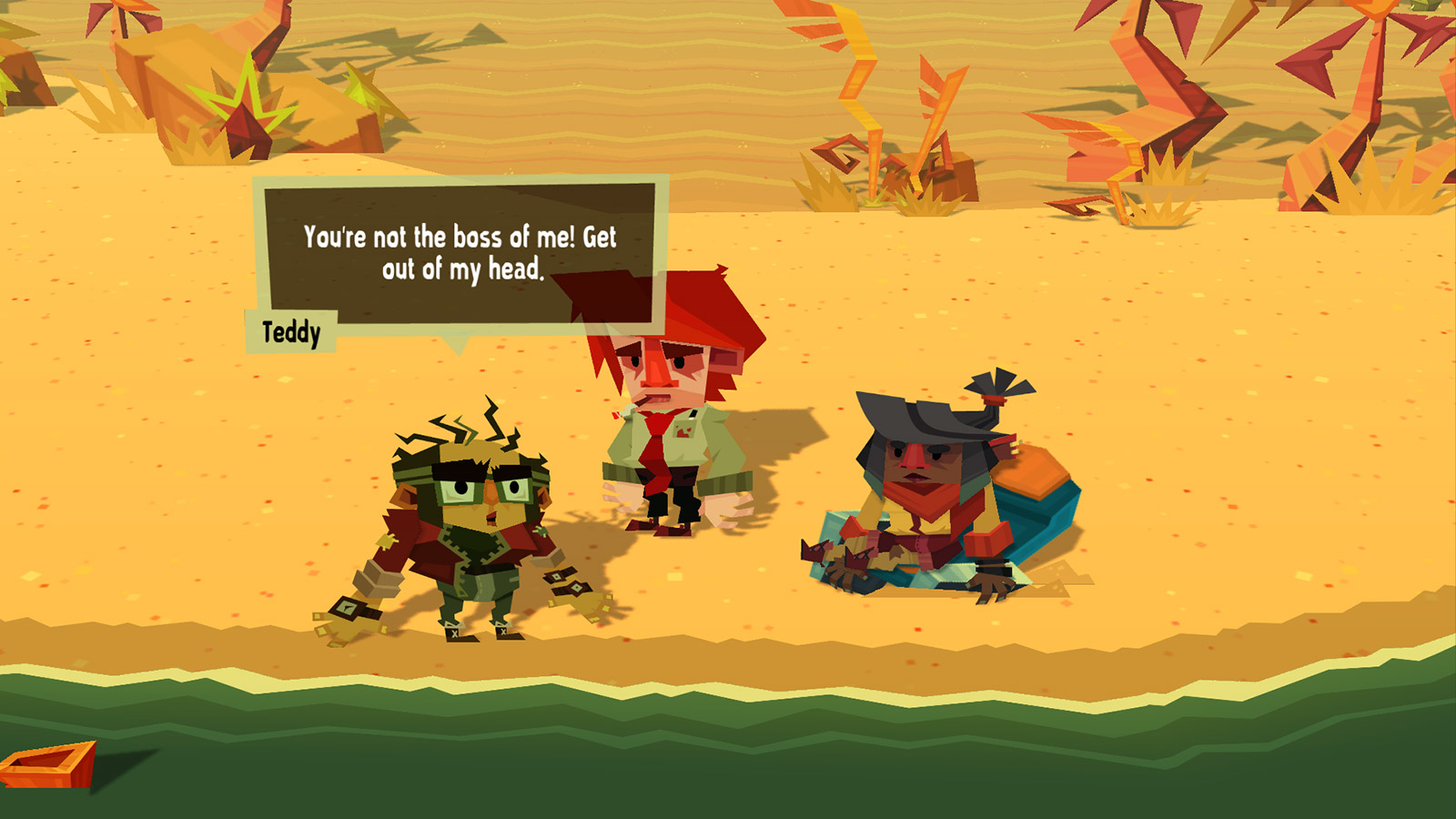Tagged: owlchemy labs
Crowdfunding Crash Course: Devin Reimer of OWLchemy Labs - Dyscourse
- by Alyson Shane

Devin Reimer is the CTO (Chief Technology Owl) at OWLchemy Labs, who are a group of "scientists on a search to find the formula behind the perfect enjoyable, silly gaming experience." Devin and the OWLchemy crew used Kickstarter to fund their game Dyscourse.
Can you briefly describe Dyscourse?
Dyscourse is an interactive choose-your-own adventure where you journey through a stylized world of choice and consequence. You play as Rita, an unfortunate art school grad turned barista, who is now stuck on a desert island with a crew of oddball travelers after a plane crash. That last choice you just made? It may end up being integral to your group’s survival, or it may lead you down a path to murder and cannibalism!
Why did you feel that the crowdfunding model was the best way to promote the game?
We hadn't yet done crowdfunding so it was something we wanted to try. We were about 7 months into development of Dyscourse, which would be the biggest title we had ever built. So crowdfunding allow us to let people see what we were working on much sooner so we could get feedback. Also this would start the word of mouth about what Dyscourse is and hopefully get people excited about it.

Why and how did you choose Kickstarter over other crowdfunding options available?
Kickstarter was the biggest and most well known.
How big was your budget before you launched your crowdfunding campaign?
We had already been working on the game for 7 months before the Kickstarter. The whole project took about 2 years to complete with a team that scaled from 4-10 people. The funds raised via the Kickstarter were just a part of the funding of Dyscourse.
How far along was your project before you felt ready to launch a crowdfunding campaign? In hindsight, would you have preferred to be farther along, or to have crowdfunded earlier?
We were 7 months into development prior to the Kickstarter. With this project, this was just enough time to figure out roughly what we wanted to build and be able to present that. Once you have crowdfunded something it becomes hard to drastically pivot your plan as that is not what people backed. Pivoting is a big part of game development. We ended up changing quite a bit from the original Kickstarter pitch, but the changes were not incredibly drastic and our backers were very supportive.
Can you explain how you prepared for and managed your campaign?
A lot of time and effort went into creating a great Kickstarter page. Graphics, videos and text. We had to figure out how to do physical rewards fulfilment (so we didn't undercharge). We also had a person to specially help with running the Kickstarter itself. Then there was all the work talking to the press and getting people excited for the Kickstarter. There is so much more that what is being described, it is a massive undertaking to launch and run a successful Kickstarter.
What tools did you use to market your campaign? Do you feel like you did so successfully, and if not, what could you have done differently?
Social media was a big part of getting the word out for our campaign. We were successful enough to get funded, which is the goal of crowdfunding at the end of the day. For marketing our Kickstarter I don’t know if there was anything I would have wanted to do differently.

In retrospect what were your best assets for running this successful campaign? On the other hand, what would you do differently ?
There are a lot of fans of Owlchemy Labs so that helped a lot when running a Kickstarter. I can’t think of anything specific that should have been done differently. I only wish we would have known how much work it was going to be.
What was your biggest challenge during your campaign?
There are generally 3 kinds of Kickstarters. Ones that are rockets and are funded in less than 48 hrs, ones that no one is really interested in that fail almost immediately, and lastly there are the ones that go down to the wire. That was our Kickstarter. We got great support but it was both a marathon and a sprint. We got successfully funded but with not a lot of time to spare. This meant that for 30 days the whole team was working hard to make sure it would be successful. Which was not only very stressful but very time consuming. We also launched our Kickstarter on Nov 6, 2013, so this was leading right into the holiday season where generally people spent less money on crowdfunding. Also, this was at the same time as the PS4 and Xbox One console launches. That sucked a lot of money out of the Kickstarter ecosystem so it made getting funding that much more challenging.
What’s the most valuable advice you could share with aspiring crowdfunders?
It was super time consuming and stressful to run a Kickstarter campaign. It is one of the hardest and most stressful things I have ever done. If you are planning on crowdfunding talk to as many people that have been through the process as possible, before you decide if crowdfunding is right for you.
Dyscourse is now available on Steam (Win/Mac/Linux).
This post is part of the #CrowdfundingCrashCourse series. You can find the entire series of interviews and summary posts here.
